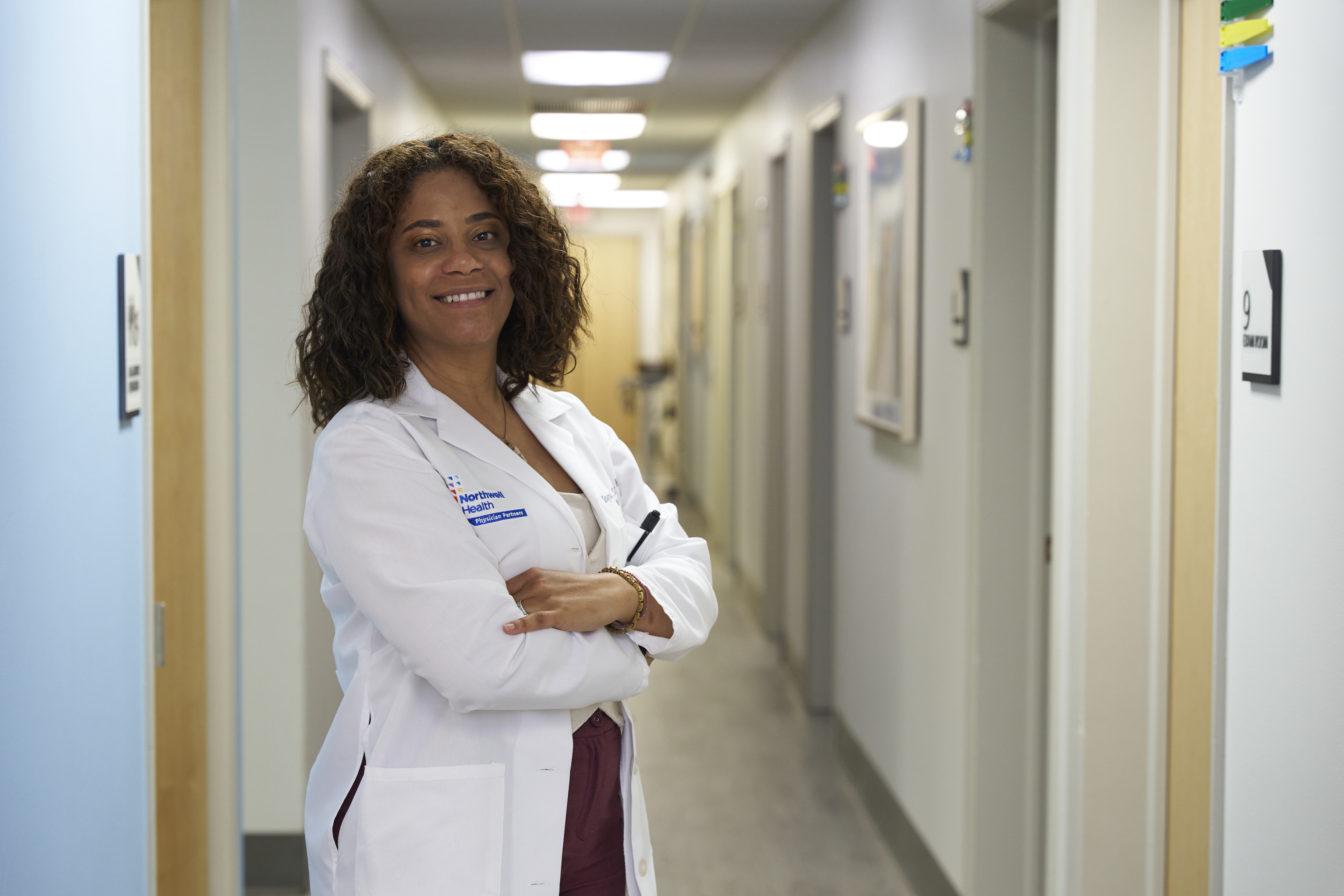Class of 2015
Shayna Sanguinetti, MD

Dr. Shayna Sanguinetti is the director of Headache for the Eastern Region at Northwell Health, acting chief of neurology at John T. Mather Memorial Hospital, and assistant professor of neurology for the Donald and Barbara Zucker School of Medicine at Hofstra/Northwell. Dr. Sanguinetti also sees and treats patients in her offices in Port Jefferson and Bayshore.
Born in New York but raised in Stone Mountain, Georgia, Dr. Sanguinetti completed her undergraduate degree with the Macaulay Honors College at the City College of New York. She then went on to complete her master’s degree in neuroscience at City College. She was part of the inaugural class of the Donald and Barbara Zucker School of Medicine at Hofstra Northwell. She completed her internship and neurology residency at Hofstra Northwell North Shore University Hospital, serving as chief resident her final year and receiving an award for Excellence in Stroke Care.
Following graduation, Dr. Sanguinetti became a neurohospitalist at North Shore University Hospital and LIJ Medical Center and the Assistant Program Director for the residency program. During that time, she also served on the Library and Informatics Committee and as a mentor for the Underrepresented Minorities in Medicine Program with the Zucker School of Medicine. She completed her Headache Medicine fellowship at New York University Langone Health.
She is a member of the editorial board for the American Migraine Foundation, an organization that educates the public on various topics related to headaches. She is the organizer and facilitator of HeadTalk, a new quarterly headache conference within the neurology department. The conference presents and discusses complex headache cases with physicians, advanced care providers, and residents. Dr. Sanguinetti’s goal is to spread awareness of headache conditions among underserved populations and to improve treatment in these communities.
What’s the best part of your day?
A typical day for me is coming into the office, greeting the staff, and my colleagues. I see patients throughout the day. I will also often have a psychiatry resident rotating with me whom I supervise. We’ll discuss patients, and I’ll do some teaching. I will also do some procedures such as Botox for migraine, nerve blocks, or trigger point injections. Honestly, the best part of my day is when I see a patient of mine for follow-up, and they tell me that they’re doing much better and the treatment is helping.
What attracted you to apply to a new medical school?
I had a very good feeling about the school when I went for my interview. I was excited to be part of something new and innovative. I really liked the fact that they had a somewhat hands-on experience during the interview day. I also thought that the EMT training was a great way to get early experience and learn medicine in the real world. I always say, I knew this was the place for me when I left that day. I had a good feeling.
What was it like to be a member of the Zucker School of Medicine’s (then, the Hofstra North Shore LIJ School of Medicine) inaugural Class of 2015?
Obviously being the first class, there was a very vested interest in how well we did. We had very close supervision. All of the professors were very accessible outside of classes if we had any questions or difficulty with the topics, and were very supportive. It was a very involved process; we were asked for feedback at every step. I think that is one thing that ties the 40 of us who started together- we had a unique experience that no other class will understand. We would be the only ones studying in PEARLS room, or there would be people at the school late at night studying together. We also saw the school change in the time we were there, from how the courses were structured to the opening of the new building.
How did the Zucker School of Medicine help prepare you for what you are doing now?
I believe there were two main ways I was prepared for residency and my career as a physician. The first is how I approach learning about new things and gathering information. We learned everything in a comprehensive manner, covering physiology, pathophysiology, imaging, and treatment all together. I still look at things that way. The second was communications. The skills we learned in that course were valuable, and I still rely on them every day. It wasn’t obvious at first when starting residency, but then I realized I could handle situations that my peers didn’t know how.
Has the school's awareness and reputation grown over the years since you graduated?
I think at first there was some apprehension since it was a new school with a new approach to teaching medicine, and people were used to more classical education. Over the years, that attitude has changed as class after class has gone through clinicals and graduated. They see the kind of students that come from the Hofstra SOM, and now it is associated with great students and great residents.
Are there any other physicians or healthcare professionals in your family?
My grandmother and mother were both home health aides. Other than that, no one close in my family was in healthcare.
Are you involved with any hobbies/activities?
In my personal time, I travel, read, and enjoy cycling with my husband.
Do you have any inspiring words or words of advice for our current students?
I would say listen to your heart and follow your passion. That is what led me to the specialty that I’m in now.